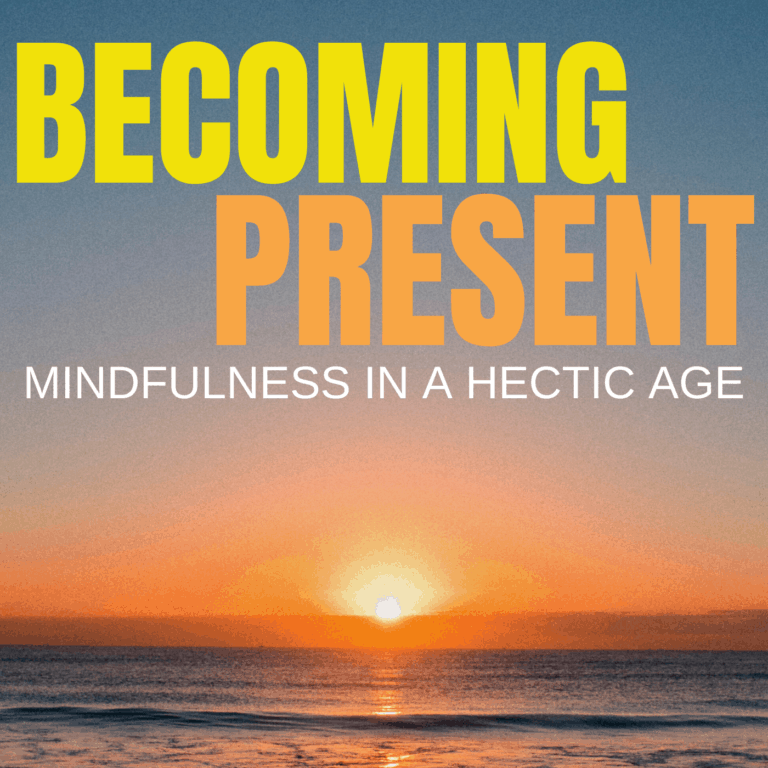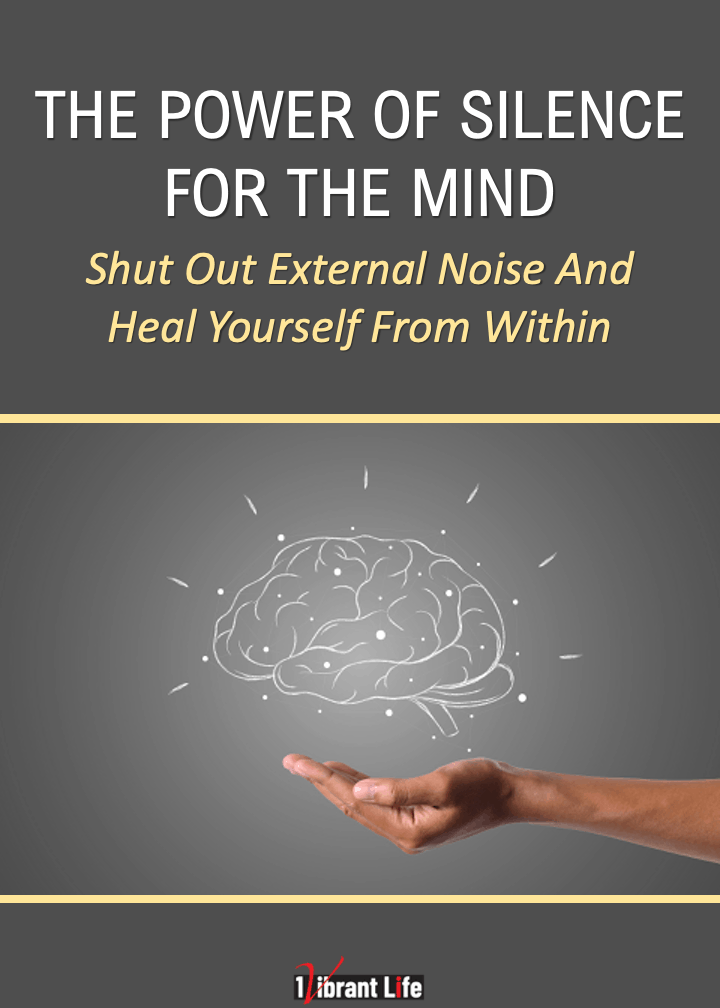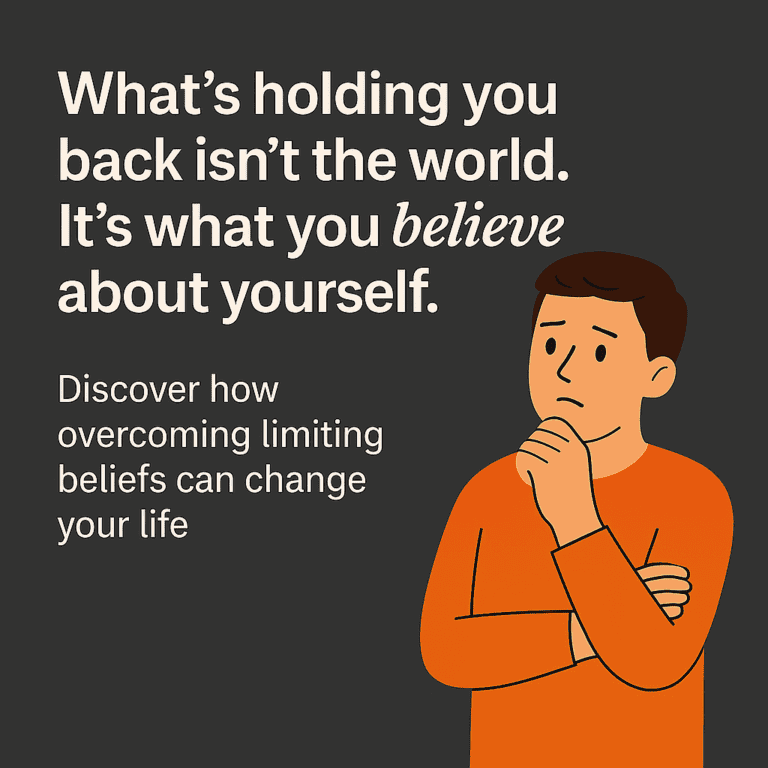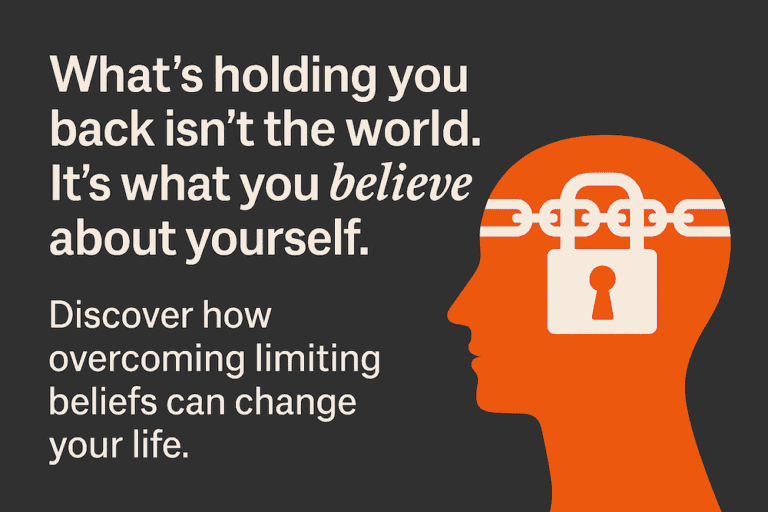Running away from problems, people and life: why we do it.
Everyone feels like taking the easy way out and running away from problems, people, and their life when it’s gotten to be too much to handle. We feel like running away from problems because stress & anxiety have overwhelmed us and we start looking for an escape route or a safe place to hide, which will only give us some temporary relief.
However, in most cases, the big problem for us, and what happens when we feel like running away, is that we’ve become too afraid to deal with the problem or problems at all.
Table of Contents

“Nothing is more harmful to a new truth than an old error”
– John Wolfgang von Gothe
Martin Ward | June 22, 2019 | Updated 10 18, 2022
A Therapist’s Perspective On Running Away From Problems, People, And Life.
As this blog explains, we react or we begin running away from problems when we feel threatened or at risk. Our basic responses are designed to keep us safe from harm, criticism, or attack.
So, whether we find ourselves desperate to run away or escape, then we can rest assured it’s an understandable response to some sense of stress or threat.
Yet, all too often, we can find ourselves layering on paralyzing self-criticism and self-blame when we feel that desire to run away from problems, people, and life.
This blog helps shine some light and increase awareness about the processes that lead us to run away when we face problems. And increased awareness, making meaning of, and understanding is a powerful tool facilitating change.
Why We Want To Run Away From Our Problems.
As Edward A. Selby Ph.D. presents in his article, Avoidance of Anxiety as Self-Sabotage: How Running Away Can Bite You in the Behind in Psychology Today.com source. He describes how running away from problems can be related to fear.
“Although understanding the causes of your anxiety is important for overcoming it, the most important aspect to focus on is how you respond to your fears. In fact, the ways that we respond to fear can often feed that fear and make it worse!”
When we want to run away from our problems, or we see that other people are running away from their problems or ignoring problems, we will find fear. It is here that we can see how a lot of people exhibit one of many types of avoidance behaviors.
In the long run, fear of some kind will keep us from dealing with, or resolving the problem(s) we may be facing.
We might think that running away from problems will allow us to leave all those problems behind.
But you know deep down that this is genuinely not the case, right?
The bottom line is that we’re actually in the grips of fear, and as human beings, when we get scared or cornered or our backs are up against the wall, we feel like running away.
At the end of the day, our problems and their continued lack of attention will catch up with us and probably create more significant long-term effects for us in many different ways down the road.

eBook

Audio eBook

eBook
Three personal growth tools for you as a gift for visiting 1VibrantLife.com
Digging Into Our Fears A Little Deeper.
On a subconscious level, we may be dealing with fear throughout our lives from some type of traumatic experience.
In her post; Fear in the Subconscious – What to Do About It, Rekha Shrivastava, M.S., CH, CRC describes, “Our fears also reside in the subconscious mind. It is only by getting some handle on our subconscious mind that we can hope to get rid of them.
Our subconscious fear can express itself in our everyday problems in life in the following types of ways. Being able to recognize a problem in this way may help you develop better problem-solving skills going forward in your personal life.
- We’re afraid of actually dealing with the problems head-on.
- We’re afraid of the outcome that confronting a problem might mean.
- We’re afraid of losing something we think we need or want.
This last point is critical. Think about it.
If a problem or problems get resolved, and you were no longer concerned about them, would you want to run away? Probably not.
So, the main issue with problems in different areas of your life, subconscious or otherwise, is finding or creating a solution to them.
Getting fear out in the open and front and center so you can see, feel, and deal with it in real-time and not resorting to some form of escapist behavior like playing video games, buying new things, drinking, and gambling because these things will only give you a temporary sense of comfort.
You can see how escapism can cause an even bigger problem, especially for young people, and is a bad idea to engage in and can negatively affect someone’s long-term goals.
However, most of the time, we are afraid of going through what it would take to solve the problem. Generally speaking, if we are faced with the fear of loss, the loss of a job, family issues, a relationship or friendship, etc., etc.
When we get to a point like this in life, we can become incapable of dealing with our problems in an appropriately thoughtful and mature way, so we feel like simply running away.
“This avoidance is self-sabotage. Think about it, have you ever walked away from an important goal because it was just too hard to face your fears?
I know I have.” – Edward A. Selby Ph.D. Source
Does Anxiety Make You Want To Run Away?
The underlying reason that we feel like running away from problems, people, places, and life is that the stress and anxiety of the situation have gotten too intense.
We want out, and running away seems like it may be the only thing we can do.
Our minds (our mental state) and our bodies (our hormones) make us think and feel like we need to run.
What’s happening, because we are freaking out inside, is that our natural internal human response system is kicking in big time, commonly known as the fight or flight response.
Perhaps this would be just fine when confronted with a stranger in a dark alley, but not so good when the bills start to pile up, the kids are driving us nuts, the boss is putting too much pressure on us and your life partner is staying out all night.
It’s all happening at the same time, this is no way to live and we just want out. Who could blame us for wanting to run away, right?
More factual details on this fight or flight response syndrome later.
Now it’s important to note here that running away doesn’t necessarily mean getting on a bus, plane, or in our car and heading out of town and not looking back.
It may just mean running, leaving, or ignoring a problematic situation instead of dealing with whatever the problem or actual fear is.
Example: Separating from your spouse or partner or quitting your job. These are stressful and very frightening moves to make in life.
Whether it’s running away from a job, a home, a city, or your relationship problems, or just running away from the whole mess you’ve found yourself caught up in.
You Are Not Alone!
When we find ourselves in a fearful situation, we all want to try to run and avoid that which seemingly has us trapped.
You see, you are not alone. We’ve all been there at some point in our lives.
However, in reality, what is happening to us is that we are just afraid.
We’re too scared to confront the actual problems we’re faced with, and we can’t or don’t want to deal with them.
Unfortunately, this can lead a person to think that running away seems like a great idea, but it isn’t.
Why We Shouldn’t Run Away From Problems.
The truth is, and we all know this deep down in our hearts and minds, that we can’t run away from anything.
We can’t run from the police, the wrong relationship, our parents, the coworker or boss we dislike, the job we hate, the bills we have, and so on and so on.
If you continue to run from these important aspects of life, you will never be able to meet and maintain your basic needs in life.
No matter where we might try to run or hide, our problems are still going to be right there with us. They will follow us. Things will never change until we deal with the internal catalyst, the fuel that creates this behavioral pattern.
Every type of problem we create will catch up to us, no matter where we go. And, we will keep repeating the same issues repeatedly until we actively decide, and make a conscious decision to fix them with some type of definitive solution.
Running away will not solve these problems, it will undoubtedly make them worse, and hiding and running all the time is no way to live.
If you’re currently thinking about skipping town because of the disaster that you’ve made of your life, don’t.
Stop and take a breath.
Everyone needs to take full responsibility for their lives and learn to deal with the problems that they create for themselves in a responsible and adult manner.
It’s better to do it sooner rather than later. Now is an excellent time to start.
However, most people continue to deal with problems the hard way, and all of those similar situations will continue to come up for them in their current lives.
When you learn to deal with problems as they arise, responsibly, and as quickly as you can, it’s a meaningful life change that can keep your problems from getting out of hand and we won’t get to the point where we will feel like running away.
When you can do the hard work and make a conscious decision to deal with each of the scary parts of each of your problems, it allows you to clear your head.
Then you can make a mature, rational, and thoughtful decision about moving to Mexico or wherever it is that you think you might be able to hide out or start over in your life.

Just To Be On The Safe Side…
YES, if you feel like you are going to be physically harmed in some way, or there is any hostility or dangerous situation that you’re caught up in, and you think the only solution is to run, and you think you can safely run and get away, then by all means RUN.
Then call the police.
Now, if it is the police, just stop, listen, respond truthfully and do what they tell you to do.
Right? OK? Don’t run from the police!
Moving on…

What Is Really Happening To Us.
The mental stress and anxiety coupled with the body’s physiological response to that stress are what make us feel like running.
Over time, we’re kind of melting down or reaching our boiling point from all the fatigue created by stress and anxiety.
The vast majority of people have never really learned to control stress and anxiety very well, if at all, and as with most people it builds on itself instead of dissipating.
When someone feels like running away, several things are happening inside their body. when someone gets to the point of feeling like running away
The autonomic nervous system is a control system that acts mainly unconsciously, regulating bodily functions such as heart rate, digestion, respiratory rate, pupillary response, urination, and sexual arousal.
This internal system is the primary mechanism that is in control of the fight-or-flight response, also known as the sympathetic nervous system. The hormones that increase under stress and anxiety are
- Adrenalin
- Cortisol
- Aldosterone
These are the nervous system responses that we all experience when our internal fight or flight response kicks in.
It’s our adrenal glands and the cortisol and aldosterone that send us running from a scary person, an attacker, or that black bear we just ran into while we were casually eating our power bar while hiking out in the woods.
Modern life can throw a ton of stuff on top of us.
If we can’t learn to just say no to things we dolly want or need, it’s all going to come to a head at some point.
This is when our stress hormones flood our systems and overwhelm us and we feel the need to run away.
It’s no wonder that so many people we know or have known suffer from chronic stress and anxiety.
We know this stress can cause significant health problems like cardiovascular disease and several different types of mental health issues.
In his article “Avoidance of Anxiety as Self-Sabotage,” Edward A. Selby Ph.D. on the website, Psychology Today describes this: “One of the most common experiences in life is feeling uneasy about a situation, and the most common reaction to anxiety is to avoid the situation. This avoidance is self-sabotage.”
Staying put and dealing with fixing the key issues and underlying causes of the problems that we’ve created that are making us contemplate running away is the only fix. Period.
When you work through all of your problems and resolve all of the critical difficulties that are making you fearful and want to run away, then when you’re truly ready to leave town, you’ll be starting your new life off with a clean slate. That’s a much better way to go.

What We Can Do.
The first step to dealing with the problems in your life that make you want to run is to stop. Get off the internal hamster wheel.
Take a breath, sit down, relax, and start methodically writing down each of the significant problems you are dealing with that make your mind and body freak out.
It would help if you found a way to calm down. You can pray, meditate, breathe, and let it all go and then start to think clearly.
Come up with some specific things in any new problems that you think you might be able to do and address them head-on, peacefully and thoughtfully.
I love this quote from some unknown guy:
“Confrontation needs to occur when it’s in my best interest, no matter what the outcome” M. Ward, Okay, it’s a quote from me.
I repeat this saying to myself whenever there is a problem or something, or someone I don’t want to talk to, or don’t want to deal with.
It makes me stop, take a deep breath, and gain the courage to talk to them, deal with it, and get it out of the way and over with because I know that it will be over and done with.
In other words, if you can’t live with a situation that does not work for you, you need to fix the problem as soon as possible by confronting the situation head-on and dealing with the critical person or people that are involved.
Here is the key: No matter what happens when you do whatever it is, peacefully, that you need to do, without any verbal or physical harm to yourself or others, resolving the problem, will be the best thing for you, and everyone else.
When you remember this, you win and so does everyone else too.
Whether they stay or leave, or you decide to stay or go, or you or they decide to end a bad situation or relationship of any kind, it’s the best thing possible for everyone.
Because all of the stress and the anxiety will be over and done with.
We’ve got a great post on how being alone and happy can go hand in hand.
Why Do I Run Away From People
Even when someone feels they’ve come out of the situation seemingly being more emotionally impacting for them than you, this is now just a problem they have and need to learn from and not yours.
You can only hope that they can.
You were strong one, strong enough not to run away from the problem and make the change you needed to make for yourself. You need to do what’s best for you.
You can always reconnect with someone that’s felt hurt in a past relationship, and it’s truly a beautiful thing for you to do.
It’s what unconditional love is all about and can make a big difference for you both.
There can be a tremendous amount of growth for everyone in allowing the past relationship to become something that is better and healthier for everyone.
Some people will have a hard time separating or changing, and it’s normal. That’s the very reason for this section of the post.
Not recognizing and accepting that someone is unhappy isn’t someone that anyone can benefit from in a relationship or working environment for very long.
The situation is most likely to get worse.
Everyone should want everyone to be as happy and healthy as possible in the end.
If someone doesn’t want you to be happy and tries to keep you in a bad situation, they should not be in your life.
The result of facing or confronting the problem or situation head-on will often be very different from the potential outcome that made us so afraid that we felt like running in the first place.
Quite often, everyone understands each other’s point of view, and everyone makes a bit of adjustment and can resolve the problem.
Life moves on, and everyone can breathe and smile again.
Finally, everyone will have a chance to change the situation in some way that will enable all of you to live in peace and move forward.
Most often, they can and will make a change to accommodate you. You are more important than you think.
Suppose they can’t, and it won’t work. In that case, it’s time for you to look for another job or another relationship, friend, or lover, and accept that that particular job or those people and relationships are not what’s best for you and your life.
You have a life where you are, and there isn’t any job or any one person or group of people that is worth displacing or losing all the other terrific things you have in your life now that you can continue to enjoy by staying put right where you are.
Here are some of the best tools you can use to get a handle on your life, lower your stress and anxiety levels and create a happier, healthier, and more balanced, vibrant life.
- Meditation
- Cognitive Behavioral Therapy
- Working with a therapist

Meditation
We could write an entire article on meditation, so let’s touch on it a bit here.
Meditation is a powerful tool that will help you slow down and find a better perspective.
It also provides real physical benefits, as slowing one’s breathing helps lower stress hormones.
You can learn more about meditation here in the calm mind, healthy body meditation guide.
This guide can show you how you can ease the stress and anxiety in your life.
Meditation will allow you to more clearly see how to work through the problems and challenging situations you’re facing.
Cognitive Behavioral Therapy
Some straightforward and very safe yet groundbreaking cognitive behavioral therapy practices can be unbelievably effective when we get into the rut of fear or avoidance.
The groundbreaking research in Cognitive Therapy (CT) or Cognitive Behavioral Therapy (CBT) was pioneered by Dr. Aaron T. Beck in the 1960s. At the same time, he was a psychiatrist at the University of Pennsylvania.
Having studied and practiced psychoanalysis, Dr. Beck designed and carried out several experiments to test psychoanalytic concepts of depression.
The best-selling book by David D. Burns, The Feeling Good Handbook, is a great go-to book to maintain a happy mental balance.
There are many great exercises in the book that will be easy to do and grasp.
Here is an excerpt from a general question that Dr. Burns answers in his book that helps to understand cognitive therapy:
Question: “Doesn’t cognitive therapy just lead to intellectual change without changing how a person really feels on a gut level?”
Answer: “No. The purpose of cognitive therapy is to transform your emotions and your perceptions of yourself and your life.
Providing rationalizations or intellectual excuses for things is not a part of cognitive therapy. The purpose of the treatment is to develop profound feelings of joy and happiness.”
You may also learn more about cognitive therapy if you decide to see a therapist to help you get a little more perspective on why your life is at a point where you are feeling like running away from your problems in one way or another.
Getting Professional Help Or Hiring A Therapist
Getting help and working with a therapist is always a good idea.
One of the best things I’ve ever done in my life was to seek out a good therapist when I knew I needed one and go through an easy cognitive-behavioral therapy process.
For me, it was a transformative life experience.
There is absolutely no negative stigma that will be tied to you at any point if you decide to talk to a therapist when you feel like things are spinning out of control.
If there is any stigma, it’s most likely in your mind and a great first topic for you and your new therapist to discuss.
Here are some resources for finding a good Therapist:
The first thing you can do is look in your local yellow pages or online for a Therapist in your area. The second thing you can do is ask friends or family for suggestions on who to see.
https://www.mentalhealthamerica.net/finding-therapy
https://onlinecounselingprograms.com
https://adaa.org/finding-help/treatment/low-cost-treatment
Do Not Be Afraid To Ask For Help.
Dealing With Problems When It’s in Your Best Interests
Below is the quote or saying, if you like that I came up with many years ago that I tell myself every time I feel like running away from a problem or problems, or ignoring them altogether, or making major changes or decisions.
I came up with this saying when I bly afraid of losing a very close friend who had just become a roommate of mine in my fairly new townhouse in southern California.
We’d grown up in the same small town in the midwest, and our families knew each other very well, so it was a perfect roommate situation.
But, I was confronted with a huge problem that I had not realized existed when we had decided that she would move in.
You see, she had a pet Bunny Rabbit.
After I had made plans for her to move in, I went to help her move furniture from the house she’d been living in.
I notice that her bunny rabbit had been peeing fairly regularly on the carpet in her house. I had imagined that she kept the rabbit in a cage.
Nope, not really. I freaked out!
The big problem was that I had $4,000 worth of new carpet in almost every room of my house.
I immediately started thinking about how I could keep this bunny rabbit from peeing on my carpet.
So, I went out and bought some wire fencing and a couple of pallets and built a huge cage for her bunny rabbit in my two-car garage.
Needless to say, she was not impressed and wanted to keep the bunny rabbit in the house. I caved. And, of course, the Rabbit not long after that the Bunny peed on the carpet.
I lost my mind and almost had a heart attack at 36.
I had to confront this problem quickly and directly with her, and I was afraid of losing a roommate, and more importantly, a very dear friend that I cared deeply for, and yes, I did like the bunny too.
However, #1 rabbit had to stay in the pen that I’d made, or #2 it had to go, or #3 they both had to leave, which I did not want to have to happen to us.
I came to the realization that if she had to leave, then she had to leave. I could not allow nor could I afford to have the bunny rabbit ruin $4,000 with of new carpet.
“Confrontation needs to occur, when it’s in my best interested, no matter what the outcome.” M. Ward.
For me, the saying works every time. Hopefully, it will work for you too.
Conclusion
Running away from problems is never the right answer.
Dealing with those difficult problems or circumstances in our lives head-on is always the best answer to what seems like overwhelming stress,
anxiety, and fear that would make us contemplate running away from our problems as well as ignoring our problems.
There are many good reasons that we can find to stay put and work through any issues we might be facing.
Gratitude is not a topic we directly covered in this post, but it is part of the internal dialog we need to have when we’re trying to work through a tough time or tough situation.
When we consider all of the wonderful, beautiful things we have in our lives that we would have to leave behind, it can help us find the strength to hunker down, stay put and face our fears head-on instead of running away from problems that they create.
We often touch upon our gratitude for the good things in our lives without actually really appreciating them.
Writing down a list of things we are grateful for is something we should or could probably do every day.
So when you feel like running away from what seems like an overwhelming problem, stop, and look inside your heart and your soul. Decide what it is that you need, and then confront the problem and your fear head-on.
Make an appointment to talk the situation over with those involved, and know the things you need to have in place to move forward.
Do this in an appropriate, thoughtful, and peaceful way to make the necessary changes so that you get those things you need in place, no matter the outcome.
Remember, no matter what the result or outcome is when you confront and communicate your needs in any situation if you stay or go or they stay or go, it will be to your advantage to get it resolved and put it to rest.
Better things await you right where you are without the need to run away.
The grass, as they say, is not always greener on the other side of the fence.
A good thing to do before any meeting that will be stressful for you and others is to hope and pray that everyone involved will come out of the meeting happier and more at peace when it’s all said and done.
Make the needed changes in your life, and overcome the fear that is holding you back from actually dealing with the problems you’re facing.
By the way, the bunny rabbit lived the rest of its life in the cage. We took him outside to play, and although one day he sadly passed away, my friend stayed in the house as my roommate and remains to this day, a very dear friend.
You can do it!
Find peace…relax as this too shall pass.

My Name is Marty Ward and I’m the creator and publisher of the 1-Vibrant-Life blog.
At the age of 26, in 1984, I was injured in a car accident in which I sustained a traumatic brain injury.
At the time of the accident, I was having a fairly successful life as a musician in Chicago, which included a recent appearance on Star Search 84′ with Ed McMahon and preparing to be included in a group major independent recording contract.
However, after my accident, I was unable to perform or play my instrument. I was out of work and I had lost all confidence in myself and my abilities, felt lost and with no direction.
My injury and my recovery led me down a path of self-improvement, and self-discovery which gave me my life back filled with many amazing experiences and a newfound sense of hope. Learn more about my story on the 1-vibrant-life about page.
CBTCP Certification (Cognitive Behavioral Therapy Certified Practitioner) | 10-16-2021 Certification From The Academy of Modern Applied Psychology, in The Transformative Science of Cognitive Behavioral Therapy, CBT

Claire Law is a UK-based Counsellor and Psychotherapist from Preston, Northern England. Claire became a therapist after a career of almost two decades of High School teaching experience. She’s also worked extensively in the Social Care and Charity Sectors, and as a Mental Health Advisor in Higher Education. Claire combines her current Psychotherapy practice with freelance writing on Mental Health, well-being, and Psychology topics. She has a passion for Social Justice and environmental causes.
Claire holds a degree from Nottingham University, a Post Graduate Certificate in Education from Leeds Trinity University College, and a Post Graduate Diploma in Integrative Psychotherapy from the University of Central Lancashire. She’s completed a wide range of extensive training and certifications in Domestic Abuse, Survivors of Sexual Abuse & Sexual Violence, Suicide and Self-Harm, Expressive Arts Therapy, Gender Variance, Online and Telephone Counselling and Polyvagal Regulation developed by Stephen Porges, a professor of psychiatry at the University of North Carolina and “Distinguished University Scientist” at Indiana University.



